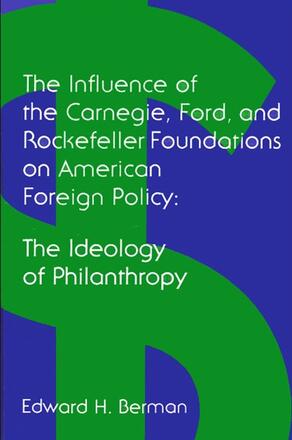
The Influence of the Carnegie, Ford, and Rockefeller Foundations on American Foreign Policy
The Ideology of Philanthropy
Alternative formats available from:
Examines the generally unrecognized role played by these foundations in support of US foreign policy.
Description
This book examines the generally unrecognized role played by the Carnegie, Ford, and Rockefeller foundations in support of United States foreign policy, particularly since 1945. The foundations' efforts on behalf of American interests abroad have focused primarily on their support for a number of institutions of higher education in strategically located Third World nations. These institutions, modeled after foundation-supported American universities, were designed to train Third World leaders in norms that would encourage them—minimally—to assume a posture of neutrality toward American economic and political penetration of their societies.
Dr. Berman's study challenges the oft-asserted, but undocumented, thesis of the American political right that these liberal foundations historically have pursued policies detrimental to United States interests. The evidence indicates how foundation policies and programs were formulated after close consultation with leaders of the American corporate sector and government officials, and how their activities were designed to further the objectives determined by those who influence the direction of United States foreign policy.
Edward H. Berman is Professor of Foundations of Education at the University of Louisville.